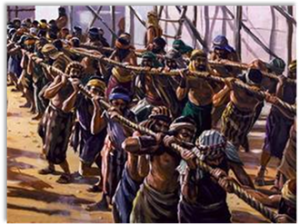The most repeated commandment in the entire Old Testament is “You shall not oppress the stranger, for you were strangers in the land of Egypt.” It is recited in daily Jewish prayer, and describes lesson of the Israelite experience of slavery in Egypt.
Does God Ask the Impossible?
If we think deeply about it, however, we also see that it is quite audacious. Its spirit has rarely played out in human history, because it rubs up against our basic human desire for vengeance. We tend to hate those who have oppressed us
Leaders like Gandhi or Mandela are the exception rather than the rule. Both of them, and many others, drew their inspiration from ancient Israel.
From the experience of slavery, the Israelites drew not a cause for hatred, but a lesson in the basic need for dignity and freedom. They chose to empathize rather than demonize.
They chose not to define themselves as victims. They become teachers of hope.
Why Empathy Matters
Empathy is not just a nice quality to have. It is not just for people of faith. It matters to each of us. It is critical to our happiness as human beings.
George Washington Carver described why empathy matters in his beautiful words, “How far you go in life depends on your being tender with the young, compassionate with the aged, sympathetic with the striving, and tolerant of the weak and the strong. Because someday in life you will have been all of these.”
Empathy is the way we open our hearts.
To receive Rabbi Moffic’s weekly digest of Jewish wisdom, click here.


